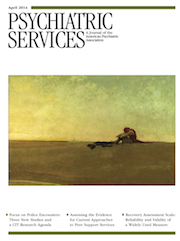Law & Psychiatry: Assisting People in Recovery Who Have Criminal Records to Reach Their Employment Goals
Abstract
Working, a goal of most people in recovery from mental disorders, can be impeded by legal exclusions and by employers’ rejections based on an applicant’s criminal record. This column describes established tools that can partially lower these barriers and recent legal developments that provide additional strategies, in particular the Equal Employment Opportunity Commission’s Enforcement Guidance. These developments address the permissible use of arrest and conviction information in employment contexts, focusing on individualized consideration of specific factors, including rehabilitation. The authors also suggest strategies for job interview preparation that, when combined with job retention planning, can improve clients’ prospects of achieving their employment goals.



